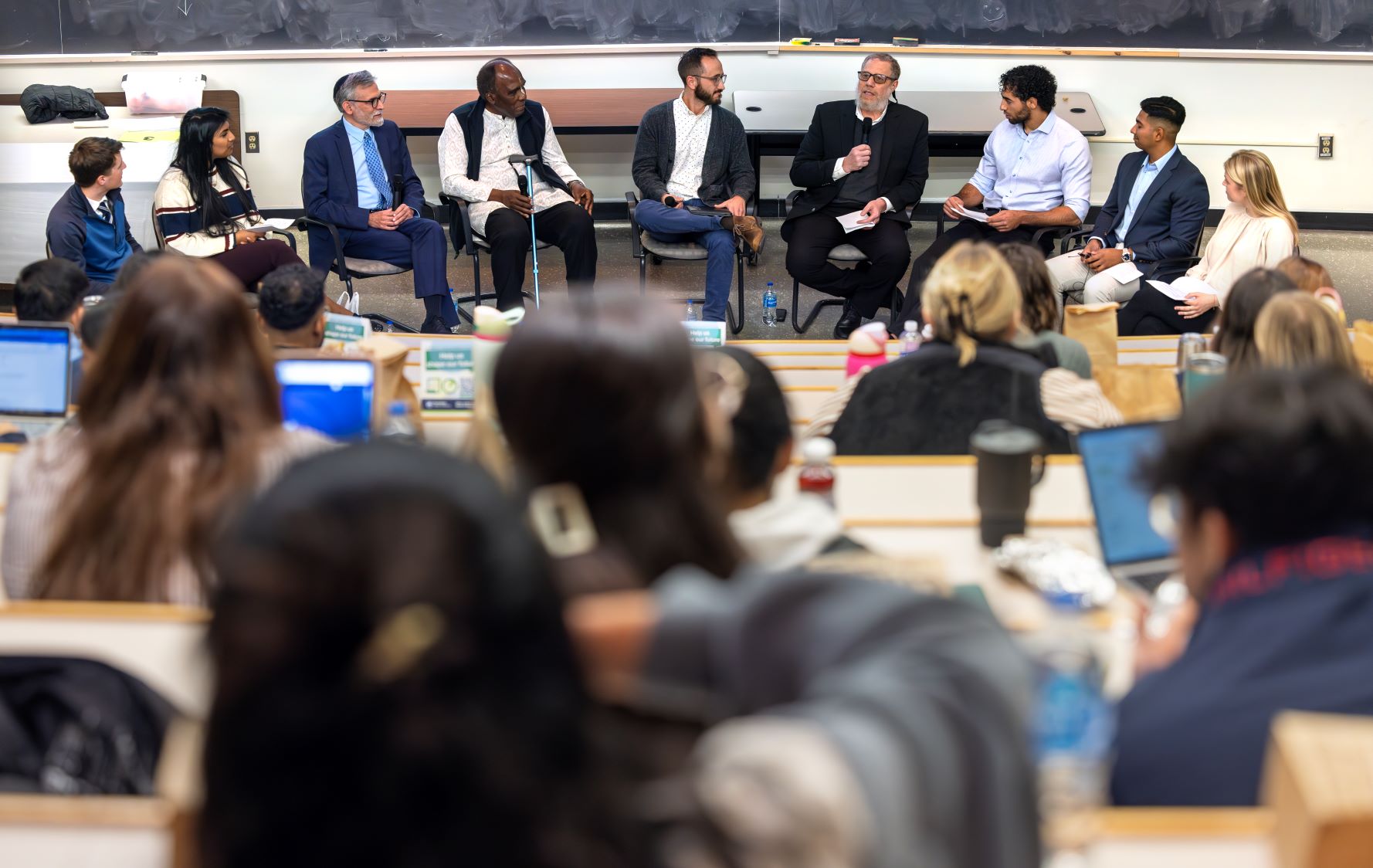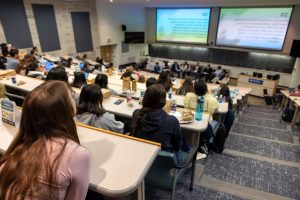Students host interfaith discussion on medical ethics and religion

Panel sponsored by the Office of Diversity, Equity and Belonging
College of Medicine student leaders from five organizations including the Jewish Union of Medical Professionals (JUMP), American Muslim Medical Student Association, Christian Medical Society, South Asian Student Association (SASA) and Catholic Medical Organization partnered to host an Interfaith Panel Discussion on Medical Ethics and Religion on Thursday, Nov. 14.
All College of Medicine and Penn State Health employees and students of any religious or non-religious background were invited to attend. The discussion also included local religious leaders. By bringing together a diverse group, student organizers hoped the panel would highlight more commonalities than differences in the academic medical center’s community.
The discussion was held with full support and sponsorship from the College’s Office of Diversity, Equity and Belonging.
“By creating an environment that prioritizes diversity, equity and the safe expression of different beliefs, we encourage our faculty, staff and students to be caring, open-minded and accepting. This builds a strong sense of community,” said Inginia Genao, MD, vice dean of diversity, equity and belonging. “To us, this means recognizing the inherent value, dignity and equality of all human beings. The Office of Diversity, Equity and Belonging strives to create an institutional culture in which all facets of identity, unique demographics, experiences and beliefs are respected because that is what makes us stronger.”

Over 60 attendees turned out for the interfaith panel discussion on Thursday, Nov. 14 that was supported and sponsored by the College’s Office of Diversity, Equity and Belonging.
The fact that the College is dedicated to creating a safe, diverse space that’s open to all backgrounds and religions is actually what drew Akhila Kondaka, second-year medical student and SASA co-president, here in the first place.
“Having all these various interest groups, cultural and religious, at the College of Medicine creates a sense of home and belonging,” she said. “The diversity, humanistic perspective and sense of belonging that the College strives for and achieves is one of the main reasons I came here to learn medicine.”
The panel followed a similar student-led event last year on medicine and suffering that was hosted by four of the five student groups. This year’s event, organizers noted, included SASA to ensure the Hindu religion was represented.
Students hope to establish these panels as a continuing tradition, said Katie Wasserstein, second-year medical student and JUMP president, because they contribute to the College of Medicine’s overall sense of unity, openness and belonging. They also hope these events encourage continued conversation and open-mindedness far beyond the panel discussions.
“In medicine where there is so much going on, it can be hard to focus on all the parts of a person,” Wasserstein said. “I think it’s good to remember that people’s faith and ethics make up a big part of them as patients and as providers, and it’s important to keep those perspectives in mind.”
The opportunity to have these open discussions will ultimately produce a generation of physicians that is empathetic and compassionate, as well as contribute to a more inclusive workplace and workforce.
“This allows us to have an open discourse about things we might not have understood about other religions and how those things intersect with our faith and how we navigate the journey of medicine,” said Justin James, second-year medical student and president of the Christian Medical Society. “I hope it continues bringing people together, asking questions, and challenging us in a way that allows individual and collective growth in terms of our faith – and in terms of people trying to find faith or trying to explore something deeper in this world that they might not have experienced or interacted with before.”
Fostering a humanistic perspective in medicine will also help them become better physicians someday, student leaders said. Working beside colleagues and caring for patients with a variety of religious beliefs is a reality of medicine, noted Luke Motter, second-year medical student and president of the Catholic Medical Association, so it’s crucial for physicians to be able to empathize with those of a different religious background – especially when facing medical and ethical problems.
If you're having trouble accessing this content, or would like it in another format, please email Penn State Health Marketing & Communications.
